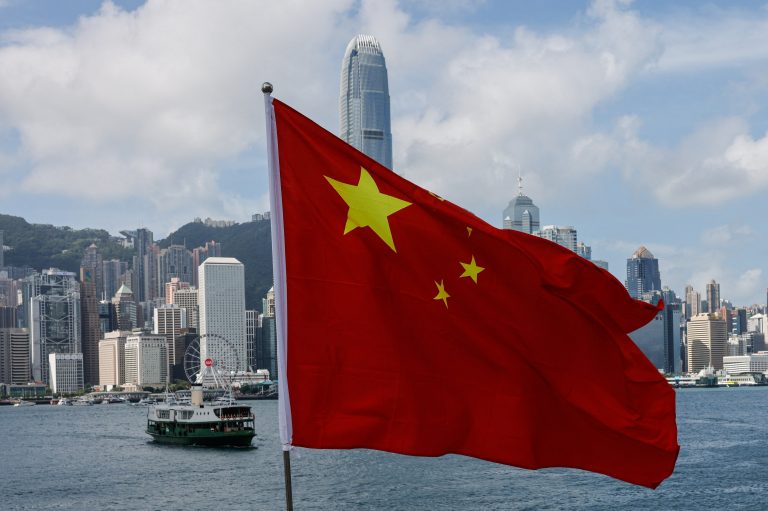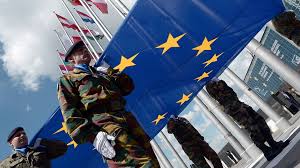
What Does the World Expect from Donald Trump’s 2025 Inauguration?
Date: 20 January 2025 | Location: United States Capitol, Washington, D.C.
Introduction
On 20 January 2025, Donald Trump is set to take the presidential oath of office at the United States Capitol in Washington, D.C. This occasion marks not only his return to the highest seat of American political power but also a pivotal moment on the global stage. Over the past year, President-elect Trump has been at the centre of intense media scrutiny and public discourse, partly due to an alleged assassination attempt in mid-2024. While the exact details of the incident remain confidential and subject to ongoing investigation, the mere occurrence of such an event underscores the polarising climate surrounding Trump’s political career. As we look towards the inauguration, observers worldwide are questioning what his presidency will mean for domestic policy, international relations, and the broader economic landscape.
This article delves into the facts, presents multiple perspectives, and explores what the global community anticipates from the forthcoming Trump administration. Grounded in verified reports from The Washington Post, BBC News and Reuters, we consider how the alleged 2024 assassination attempt, domestic challenges and international pressures shape expectations for Trump’s second term. The inauguration sets the stage for renewed debates about governance and leadership in a rapidly evolving world.
A Surreal Moment: Reflections on the 2024 Assassination Attempt
In mid-2024, during the latter stages of a fiercely contested campaign season, international media outlets, including BBC News, reported on a foiled assassination attempt against Donald Trump. Though the United States Secret Service and local authorities swiftly neutralised the threat, the incident sent shockwaves through political circles. According to a Washington Post briefing dated 15 July 2024, preliminary findings suggested that a lone individual acted on extreme ideological grounds. Further details remain confidential, pending broader investigations.
This event served as a stark reminder that political violence, while universally condemned, can manifest in volatile environments where public figures polarise sentiment. Trump’s supporters rallied behind him with a renewed sense of unity and urgency, framing the incident as an example of the dangers he faces for championing what they perceive to be the “forgotten American.” Critics, however, expressed concern that Trump’s rhetoric might continue to foster an atmosphere conducive to violence. Nonetheless, the cooperation of federal and local law enforcement underscores the government’s ability to address and thwart threats of this magnitude.
As the world watched these events unfold, it became clear that heightened security measures would accompany major public appearances. The 2025 inauguration is expected to be among the most tightly secured ceremonies in modern American history.
A Second Chance (or Third Act?) at the White House
Donald Trump’s political journey has been anything but conventional. From his 2017 swearing-in, through a tumultuous four-year term ending in 2021, to his continued influence within the Republican Party, Trump has repeatedly defied political norms. His return to the presidency in 2025—whether labelled a second or third act—raises questions about how his leadership will differ from his earlier tenure.
● Economy and Jobs: Trump’s first term was characterised by assertions of strong economic growth and low unemployment, at least until the global pandemic disrupted markets in 2020. Analysts from Reuters predict his 2025 agenda will focus on revitalising U.S. manufacturing, deregulating certain industries, and negotiating new trade deals. Supporters anticipate a reinvigorated “America First” approach, while critics remain wary of protectionist policies and potential tensions with foreign allies.
● Healthcare Reforms: Among Trump’s contentious domestic issues has been the overhaul of the Affordable Care Act. As of January 2025, Republican legislators appear divided on whether to pursue significant healthcare reform aggressively. Polls from Pew Research Center show healthcare is a top concern for voters across the political spectrum, suggesting Trump could face bipartisan pressure to produce tangible results.
● Immigration and Border Security: During his earlier presidency, tightening immigration policies and building a southern border wall were signature initiatives. Observers expect him to revisit these measures, potentially reigniting legal battles and protests reminiscent of his first term.
Judicial and Legislative Influence
Trump’s return to the Oval Office also brings the potential to reshape the judiciary. While there are no immediate Supreme Court vacancies, the unpredictability of such openings could allow Trump to influence the court’s ideological balance, shaping its decisions for decades.
Global Reactions and Foreign Policy Outlook
European leaders have expressed measured sentiments regarding Trump’s impending inauguration. Reports from BBC News indicate European Union officials aim to re-establish a stable, albeit cautious, relationship with Washington. Trump’s earlier approach to NATO funding and trade agreements unsettled longstanding alliances, leaving European nations wary of his policy trajectory.
Asia-Pacific: Balancing Opportunities and Threats
The Asia-Pacific region, including China, Japan and South Korea, holds a keen interest in how Trump’s return might shape the strategic landscape. China remains cautious about trade disputes that flared during his first term, while Japan and South Korea may anticipate renegotiations of defence cost-sharing agreements. Trump’s return could either exacerbate or ease existing tensions, depending on his administration’s approach.
The Middle East: Uncertainty Amid Ongoing Turmoil
In the Middle East, Trump’s previous achievements, such as the Abraham Accords, are viewed as significant yet incomplete. Critics argue these agreements failed to address underlying issues in Israel-Palestine relations. Observers wonder whether Trump will seek to broker new deals or revisit old arrangements, potentially reshaping regional dynamics.
The World’s Expectations
Some believe Trump could adopt a more calculated style in 2025, informed by lessons from his earlier term. However, sceptics assert his rhetoric will remain steadfast, and divisive commentary may continue to dominate the political narrative.
Heightened Security Consciousness
The 2024 assassination attempt has amplified security concerns, with unprecedented measures anticipated for the inauguration. This reflects a broader shift in how public events are managed in an era of heightened political polarisation.
Economic and Diplomatic Ripple Effects
Trump’s inauguration is expected to influence global markets, with potential optimism tied to business-friendly policies tempered by concerns over protectionism. Diplomatically, cautious congratulations from global leaders signify respect for the election outcome alongside a watchful posture.
Why This Inauguration Matters
The 2025 inauguration is more than a ceremonial transfer of power—it marks a crossroads for American democracy and global alliances. The contested political climate, exemplified by the 2024 assassination attempt, underscores the fragility of civil discourse and the necessity of inclusive policymaking.
This moment symbolises the enduring tension between division and unity, as well as the potential for political reinvention. Trump’s second term represents an opportunity for renewal, demanding decisions that prioritise unity, empathy, and long-term strategies.
Conclusion: A Chance for Renewal and Reflection
Donald Trump’s 2025 inauguration captures the world’s attention, symbolising the resilience—and fragility—of democratic institutions. As his presidency unfolds, the global community expects clarity on critical issues: healthcare, security, international trade and social justice. Beyond policies, there is hope for a shift in tone towards unity and progress.
Leadership should uplift all people, truthfully address challenges, and inspire hope. Trump’s presidency offers a profound opportunity for reflection and purpose and a collective step forward. Whether it delivers transformative change or reaffirms existing divides, history will judge the choices made in the years ahead.
Now, the world watches Washington, D.C., awaiting what this new chapter will bring.
Aric Jabari is the Editorial Director at the Sixteenth Council.



